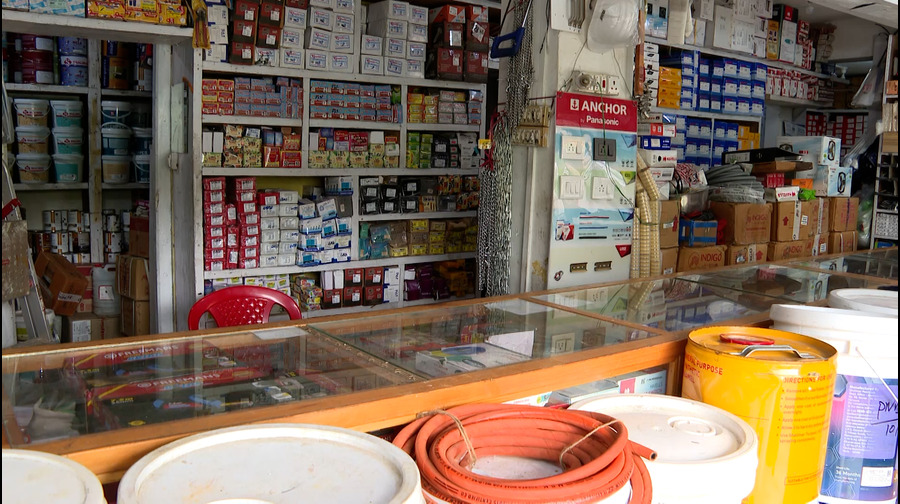
With the new Goods and Services Tax set to roll out in January next year, Bhutan’s hardware dealers are worried they may end up paying double taxes and affecting their businesses. The Bhutan Hardware Association says businesses are seeking clarity on whether the 10 per cent Bhutan Sales Tax or BST they have already paid will be adjusted or refunded under the new 5 per cent GST. They say without other mechanisms, retailers could end up paying twice for the same goods.
Hardware businesses typically maintain large inventories to ensure smooth operations. Currently, a 10 per cent BST is levied at the point of entry. Under the GST framework, the tax rate will drop to 5 per cent, which is expected to benefit businesses in the long term. However, the transition poses immediate challenges.
The Bhutan Hardware Association says the implementation of GST could push up prices during the transition. This, it says, will put businesses at a disadvantage if they cannot clear stocks within this year, while goods from Indian border towns may remain cheaper.
They also highlighted the potential for double taxation, as hardware businesses with a minimum turnover of 5 million ngultrum are required to register and file GST.
Thinley Dorji, the Chair of Bhutan Hardware Association said, “Once the tax drops to 5 per cent, businesses will still have stocks that were already taxed at 10 to 15 per cent. In response to our questions about credit notes and input notes mechanisms commonly used in countries such as India, the authorities clarified in a training circular that such provisions will not be extended here.”
The association has again requested the Department of Revenue and Customs to issue a public clarification on transitional rules for pre-GST stocks. It also proposed for the consideration of a system for input tax credit or stock adjustment for unsold inventory, and hold a consultation to guide the hardware sector on compliance during the transition.
Meanwhile, the Department of Revenue and Customs in its notification stated that under GST, businesses cannot claim credits for taxes paid under the old system. Therefore, businesses are advised to keep operating normally and avoid stockpiling goods to ensure a smooth GST transition.
However, the association said that it is challenging for hardware businesses to avoid stockpiling. According to the association, hardware items, such as construction materials, tools, and machinery, are often imported, so delays or price fluctuations can prompt businesses to stock up to avoid shortages. The association added that dealership arrangements with suppliers can also lead to an accumulation of stock. Additionally, with hardware stores carrying around 7,000 items in their inventory, it says that it is difficult to sell everything quickly, making stockpiling almost inevitable.
“Since we have already paid 10 per cent on the existing stocks, which will now be reduced to 5 per cent, we are requesting an adjustment based on the inventory values we will submit. There are international precedents for this in countries such as India, Singapore, and others.”
Meanwhile, hardware businesses are awaiting guidance and hope for a smooth transition as the GST rollout approaches.
Kinzang Lhadon
Edited by Kipchu










